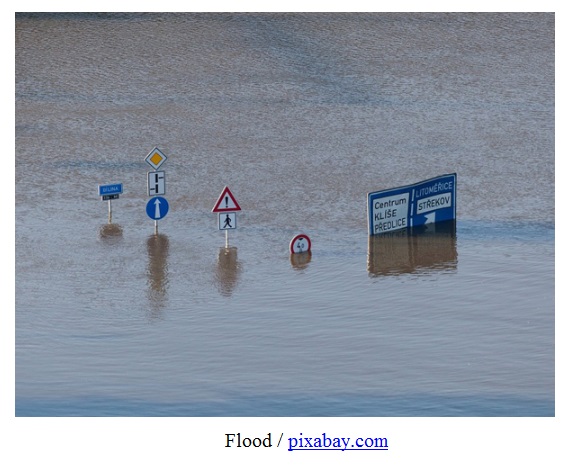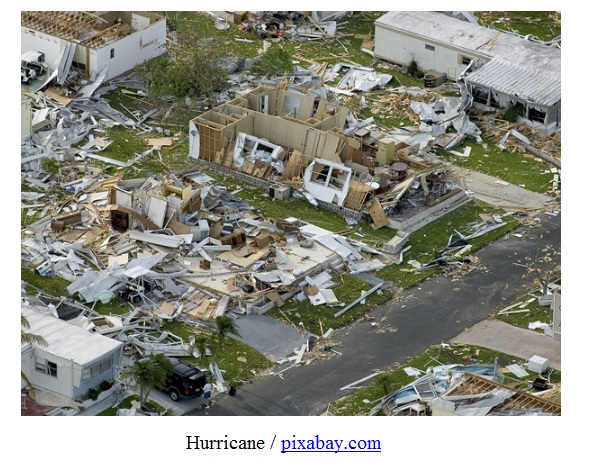October 11, 2018
Scholars and politicians are more often getting interested in global climate changes, and more often the impact of such changes to economy is noted. According to climate researchers, global warming may lead to occurrence of hazardous heavy rains era, states The New York Times. Only this year, Japan and India suffered ruining rainfalls, where entire villages were flooded, in Florence, where water dams were destroyed, in the Philippines, where the entire harvest of rice, which is the main food culture in the country - was killed. In addition, rains cause impact climate as they are, and the amount of precipitation is constantly rising. In another publication the newspaper states the same about hurricanes, which are occurring more and more often.
 Weather related calamities, especially if they occur frequently, influence on economy of countries. Despite that fact that owing to early warning systems and construction of shelters, the human mortality rate from hurricanes and heavy rainfall has dropped, destructions and losses are still the issue. The data from analysis of over 6500 cyclones show that the national income rates of the effected countries did not reach their previous growth rate even in 15 years after the catastrophe.
Weather related calamities, especially if they occur frequently, influence on economy of countries. Despite that fact that owing to early warning systems and construction of shelters, the human mortality rate from hurricanes and heavy rainfall has dropped, destructions and losses are still the issue. The data from analysis of over 6500 cyclones show that the national income rates of the effected countries did not reach their previous growth rate even in 15 years after the catastrophe.
The Philippines can be taken as a demonstrative example, where 76 calamities were registered from 2006 to 2013 – mainly floods and tropical storms. Total loss to the agriculture was $3.8 billion and echoed in food supplies. Statistical data show increase of child mortality for two year after the calamity – little girls die, who do not get sufficient resources.
 On average, for the past ten years, floods and storms forced almost 21 million people to migrate– three time more than those who had had to move as a result of conflicts. According to Munich Re, a large insurance company, in comparison with early 1980’s. the losses from floods and storms has increased over three times. The chief climate researcher of the insurance company Earnest Rauch thinks that the main problem is “slow adaptation to growing risks”
On average, for the past ten years, floods and storms forced almost 21 million people to migrate– three time more than those who had had to move as a result of conflicts. According to Munich Re, a large insurance company, in comparison with early 1980’s. the losses from floods and storms has increased over three times. The chief climate researcher of the insurance company Earnest Rauch thinks that the main problem is “slow adaptation to growing risks”
Unpreparedness of people to trust weather forecasts is becoming a separate issue. For instance, due to the error of operators of a dam over 500 people died and over 57 thousand hectares of fertile soil was destroyed in Kerala, a richest state in India. After a long draught in the region, the long wanted rains came and filled the water dam ponds. Although the meteorologists had warned about heavy rains in August, the operators waited until last minute to discharge water, being wary of the assumption that the forecasts may prove to be wrong, and as a result, they took a decision very late.
According to Anders Levermann, climate specialist from Potsdam University, the issue is in the amount of funds to be assigned to address of the issue in the conditions, while, “it is clear that more protection is needed, but the exact amount is not known”. However, the price of doing nothing will be very high in any case: in the next 20 years, only as a result of river overflows, the world economy will lose 17%. Rise of the average temperature on our planet by 2 degrees will lead to rise of the Ganga River level twice, and hundreds of millions of people who live in the aquifer are will be in the emergency zone.
 The same level of temperature rise, according to Bloomberg data, will cause food crisis for global warming will lead to drop of harvesting rate of main cultures – rice, corn, grain, soya beans. According to forecasts, at warming up by 2 degrees, corn harvest rate will drop by 8-14%, while at higher rise – to 20% in certain parts of the Earth. There even exists an end of the world scenario as a result of the assumption that all crops will be entirely destroyed in some regions of the world.
The same level of temperature rise, according to Bloomberg data, will cause food crisis for global warming will lead to drop of harvesting rate of main cultures – rice, corn, grain, soya beans. According to forecasts, at warming up by 2 degrees, corn harvest rate will drop by 8-14%, while at higher rise – to 20% in certain parts of the Earth. There even exists an end of the world scenario as a result of the assumption that all crops will be entirely destroyed in some regions of the world.
It wasn’t without reason that the Nobel Economy prize was awarded for research work in the field of interaction of climate and market economy and it was not without reason, President Trump’s decision to withdraw from the Paris Climate Agreement turned out to be a serious problem, while governments of many countries pay serious attention to the issues of climate and environmental protection, even if this requires unpopular measures.
The Guardian writes, that fulfilment of climatic agreements may force the British government take “arguable” steps from the political point of view. Chris Clarke, Executive Director of the Committee for Climate Change told that these steps would include regulation of industry and markets. Clarke’s duties include informing the ministries on the extent of the need to reduce of contaminants and the ways of achieving this. In April, Clare Perrie, Minister of Energy and Environmental Protection announced that she would ask the Committee to run an analysis of current climatic target of Britain – reduction of emissions by 80% by 2050 in comparison with the level of 1990. It is assumed that for achieving this goal, the country would have to increase using “clean” energy, move to use of electric cars, increase the amount of green planting and, possibly, invest into reduction of emissions in other countries.
The results of the requested analysis will be published next spring, soon after possible Brexit. However, Starke if afraid that “political instabilities”, caused by exit from EU, which the government is focused on currently, may prevent the work over the climate issue.
http://polit.ru/article/2018/10/11/climat/